Document Author
Year Published
- 2015 (9) Apply 2015 filter
- 2013 (5) Apply 2013 filter
- 2007 (4) Apply 2007 filter
- 2012 (4) Apply 2012 filter
- 2005 (2) Apply 2005 filter
- 2014 (2) Apply 2014 filter
- 1998 (1) Apply 1998 filter
- 2002 (1) Apply 2002 filter
- 2006 (1) Apply 2006 filter
- 2008 (1) Apply 2008 filter
- 2011 (1) Apply 2011 filter
- 2017 (1) Apply 2017 filter
Topic
- (-) Remove Forms filter Forms
- 100% Access to Justice (14) Apply 100% Access to Justice filter
- Forms (14) Apply Forms filter
- Research (14) Apply Research filter
- Reports, Evaluations, Best Practices, Surveys (13) Apply Reports, Evaluations, Best Practices, Surveys filter
- Self-Help Centers (11) Apply Self-Help Centers filter
- Plain Language & LEP (10) Apply Plain Language & LEP filter
- Automated Forms & E-Filing (9) Apply Automated Forms & E-Filing filter
- Trial Court Self-Help (9) Apply Trial Court Self-Help filter
- Plain Language (8) Apply Plain Language filter
- Technology (8) Apply Technology filter
- Articles & SRLN Briefs (7) Apply Articles & SRLN Briefs filter
- Reports (7) Apply Reports filter
- Simplification (7) Apply Simplification filter
- Strategic Planning (6) Apply Strategic Planning filter
- Best Practices (5) Apply Best Practices filter
- Best Practices for Self-Help Centers (5) Apply Best Practices for Self-Help Centers filter
- Ethics Education (5) Apply Ethics Education filter
- Presentations (5) Apply Presentations filter
- LEP and Access (4) Apply LEP and Access filter
- Conferences & Summits (3) Apply Conferences & Summits filter
- Judicial Ethics (3) Apply Judicial Ethics filter
- Libraries (3) Apply Libraries filter
- Unbundling (3) Apply Unbundling filter
- Allied Professionals (2) Apply Allied Professionals filter
- Evaluation (2) Apply Evaluation filter
- Funding (2) Apply Funding filter
- Judges (2) Apply Judges filter
- Legal Aid (2) Apply Legal Aid filter
- Triage (2) Apply Triage filter
- Webinars (2) Apply Webinars filter
- Clerk, Self-Help Center Staff, and Librarian Ethics (1) Apply Clerk, Self-Help Center Staff, and Librarian Ethics filter
- Constitutional Issues (1) Apply Constitutional Issues filter
- Courts (1) Apply Courts filter
- Impact of Self-Represented Litigant Innovations on Cost and Efficiency (1) Apply Impact of Self-Represented Litigant Innovations on Cost and Efficiency filter
- Integration with Institutional Process (1) Apply Integration with Institutional Process filter
- Justice Tech Entrepreneurs (1) Apply Justice Tech Entrepreneurs filter
- Linking a Self-Help Center to Other Services (1) Apply Linking a Self-Help Center to Other Services filter
- Managing a Self-Help Center (1) Apply Managing a Self-Help Center filter
- Starting a Self-Help Center (1) Apply Starting a Self-Help Center filter
- Trainer of the Trainer Materials / Curricula (1) Apply Trainer of the Trainer Materials / Curricula filter
- Triage & Service Portal (1) Apply Triage & Service Portal filter
- Working Groups (1) Apply Working Groups filter
State
- New York (6) Apply New York filter
- California (3) Apply California filter
- Michigan (2) Apply Michigan filter
- Montana (2) Apply Montana filter
- Alaska (1) Apply Alaska filter
- Connecticut (1) Apply Connecticut filter
- Georgia (1) Apply Georgia filter
- Iowa (1) Apply Iowa filter
- North Carolina (1) Apply North Carolina filter
- Washington (1) Apply Washington filter
Tags
Post date
Search results
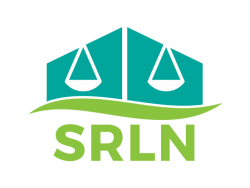
Weblinks: Technology Resources (SRLN 2015)
The following is a list of organizations geared toward technology/IT support in the non-profit and legal aid space. Inclusion does not reflect endorsement. Idealware Idealware, a 501(c)(3) nonprofit, provides thoroughly researched, impartial and accessibl ...
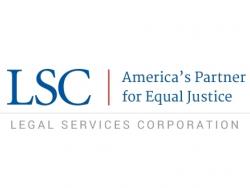
Report: Report of the Summit on the Use of Technology to Expand Access to Justice (LSC 2013)
In 2012 and 2013, the Legal Services Corporation convened a national Technology Summit that brought together more than 75 representatives of legal aid programs, courts, government, and business as well as technology experts, academics, and private practit ...
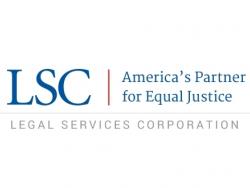
Resource: Technology Initiative Grants (LSC 2015)
Since 2000, when Congress first appropriated special funds for the Technology Initiative Grants (TIG) program, the Legal Services Corporation (LSC) has been a leader in the development and use of technology to more effectively meet the legal needs of low- ...
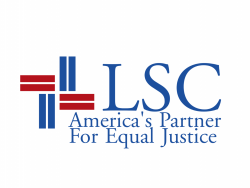
Article: Using Technology to Enhance Access to Justice (Cabral, Chavan, Clarke, Greacen, Hough, Rexer, Ribadeneyra, Zorza 2012)
This is a collection of seven article published in the Fall 2012 issue of the Harvard Journal of Law and Technology (JOLT) as part of LSC's June 2012 technology summit. These articles focus on how to best utilize particular technologies to enhance ac ...
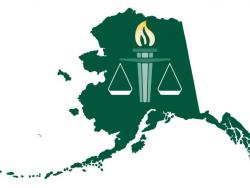
Article: Literacy and the Courts (Alteneder 2007)
This article sets out how the prevalence of low literacy in America, as identified by the National Assessment of Adult Literacy (NAAL), explains why so many employees, clients and customers in everyday situations often fail to complete forms accurately, d ...
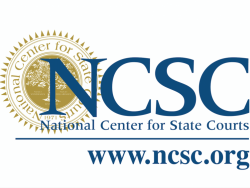
Paper: The Role of Technology in the Access Solution (Alteneder, Genz, Hertz, Hough, Jacobs, Rawdon 2005)
This paper, was prepared for the Summit on the Future of Self-Represented Litigation (March 24-25, 2005; Chicago, IL) funded by the State Justice Institute (additional Summit materials can be found here). It addresses the critical role that technology sol ...
Letter: Comment to the Federal Court Rules Committee on Electronic Filing for SRLs (Zorza 2005)
This Comment to the Federal Courts Rules Committee by Richard Zorza briefly outlines some of the risks in authorizing federal court mandated e-filing with respect to self-represented litigants, and suggests both that the issue of mandatory e-filing could ...
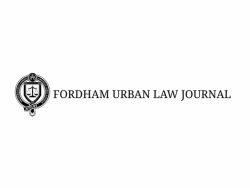
Article: The Case for Court-Based Document Assembly Programs: A review of the New York State Court System’s "DIY" Forms (Klempner 2014)
In this article, Rochelle Klempner, Chief Counsel, New York State Courts Access to Justice Program, explores how document assembly systems can serve as a critical tool for access to justice for the self-represented litigant. Part I provides an overview of ...
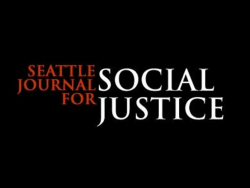
Article: Improving Access to Justice: Plain Language Family Law Court Forms in Washington State (Dyer, Fairbanks, Greiner, Barron, Skreen, Cerrillo-Ramirez, Lee, Hinsee 2013)
From the Abstract: About 65 percent of family law litigants in Washington State come to court without a lawyer. Plain language forms will give many of these pro se litigants the ability to conduct their lawsuits without legal representation or with limite ...
Article: Turner v. Rogers- Improving Due Process for the Self-Represented (Zorza 2012)
Article by Richard Zorza on the U.S. Supreme Court’s decision in Turner v. Rogers (2011) and how courts should see this decision as an opportunity to improve their services and programs for self-represented litigants. Recommended Citation: Richard Zorza, ...